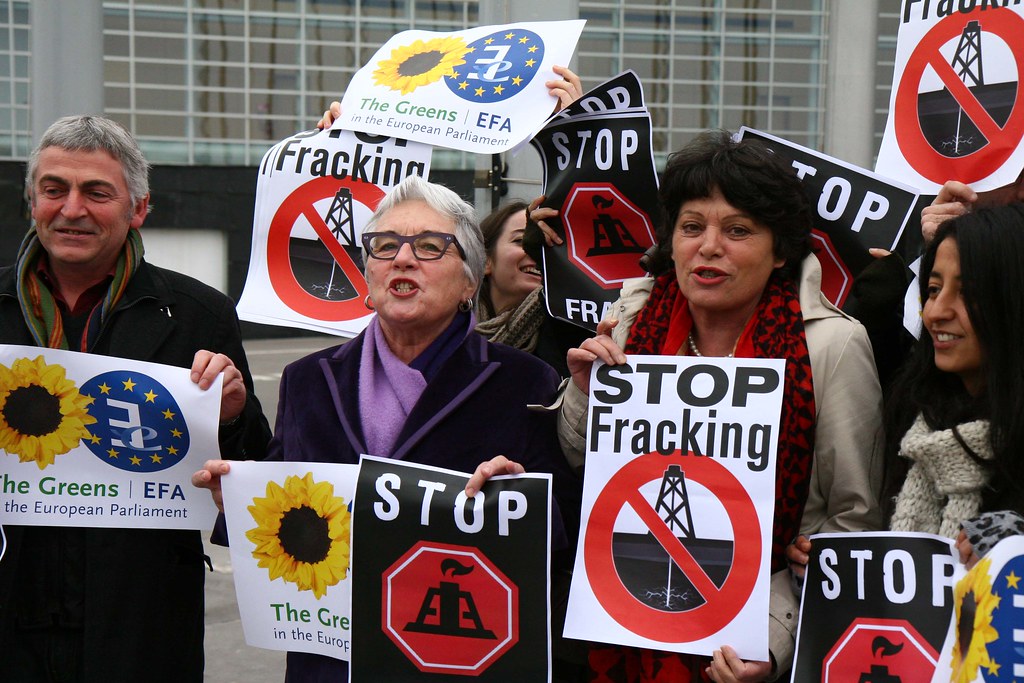All about big business
Negotiations between the US and the EU for a transatlantic trade and investment partnership (TTIP) have been going on since early 2013. They are scheduled to conclude at the end of 2015. Not heard of them? Not surprising. Talks have taken place in virtual secrecy and we are indebted to leaks for what little is known about them. Industry is more comfortable than government with ‘commercial in confidence’ arrangements, and TTIP is all about what suits industry. Some 93% of the European Commission’s meetings with TTIP stakeholders has been with big business.
Being discussed is no less than the creation of the world’s largest free-trade area. On the face of it, reducing trade barriers between the US and EU is not at all a bad idea. The problem is that tariffs are already tiny (less then 3% overall) and the barriers in TTIP’s sights are non-tariff, largely regulations and standards. No doubt the removal of some of these would also be beneficial, but it would be a shame to lose others. And while hacking away at tariffs is a reasonably simple business, altering regulations and standards is much more complicated. Negotiations are complex because any change is likely to help some and damage others. Corporations are determined to be among those that are helped (perhaps whatever the damage to others), which may be why talks have been so secret.

EU Greens demonstrating against TTIP
Now, it is probable that large corporations are less concerned with the public interest than with their own. That is what is expected of them; it `is how capitalism works. We should not expect large corporations to be nice, but we do expect government to prevent them being too nasty.
You won’t see any benefits, just costs
But what if governments feel that there are huge benefits from industry having its head? Governments see economic growth as the reward offered by TTIP. The UK government estimates the annual benefit for the UK alone to be £10 billion, and £100 billion for the EU as a whole. This apparently works out at £400 a year per UK household, not that the average UK household will necessarily see any of it.
Benefits from TTIP are contingent on industry profiting from alterations to regulations and standards. The more industry-friendly the alterations, the more economic growth. And the costs? The UK government has not calculated the costs. Indeed, it has promised that there will be none, which is disingenuous: wherever there are benefits, there are also costs, though they are not necessarily paid by those who benefit. The main costs of TTIP are likely to be indirect costs to society at large arising from change in the balance between corporate power and government power.
Less transparency
There is likely to be less democratic control of corporations. The investor-state dispute settlement (ISDS) arrangements of TTIP will allow corporations to take governments before tribunals for losses arising from government action. Corporations (just like individuals) can already sue governments for breaking the law, but not for damaging profits. While corporations may hold governments to account, there is to be no comparable system by which corporations can be held to account.
National governments will cede their democratic powers to tribunals of legal experts. In telecommunications and pharmaceuticals, the best legal talent has long been attracted, and rewarded, by big business. In addition, the UK government would probably find difficulties in protecting parts of the NHS, presumably the most profitable parts, from privatisation. Had ISDS been in force, BP, Exxon and the banks would never have been brought to book.
Regulations and standards that inconvenience industry and reduce corporate profits will be undermined, no matter how much they protect the public. Food safety, intellectual property and the environment would be at particular risk. Bureaucrats and corporate executives would take decisions in these matters rather than elected representatives.
More inequality
TTIP is not simply a case of US multinationals bullying the EU. There is an economic rationale behind TTIP which makes it acceptable, even attractive, to sectors of the EU community. Trade liberalisation is beneficial in that it allows more efficient use of resources in the production and distribution of goods and services. But benefits are unlikely to be spread equally: the rich and powerful can seize more than the poor and weak, and generally do – unless they are constrained by government.
Government reluctance to intervene in TTIP is excused by primitive, neo-liberal notions of wealth trickling down from the rich to the poor. Greed is good because the richer the rich, the more there is to trickle down to the rest. Thus, it is in the interests of us all that impediments to companies making profits be removed. This might hurt society in the short term, but society will benefit in the long run.
While chief executives of companies entwined in TTIP negotiations have generally not been forthcoming about what has been going on, governments have been forced by leaks and consequent public protests to say something, though usually not much. Governments have issued assurances that they have the public interest at heart in their dealings with big business. Remarkably, they expect to be trusted, unaware that public trust in the ability and willingness of governments to reign in big business is exhausted.




